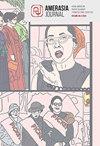引言:批判性难民研究与亚裔美国人研究
IF 0.4
4区 社会学
0 HUMANITIES, MULTIDISCIPLINARY
引用次数: 1
摘要
我不知道我想念它,直到我拥有它。这里的“它”指的是与批判性难民研究集体(CRSC)成员之间深厚的智力友谊,因为我们把我们的整个难民自我——我们的家庭秘密、记忆缺口、私人悲伤,以及我们的创造力、批判性思维和即兴实践——带到为流离失所的人建立一个研究领域的工作中。当我们在2017年启动CRSC时,我已经花了近三十年的时间来建立亚裔美国人研究,作为一名学者和教师。然而,在那段时间的大部分时间里,我把自己作为Việt Nam难民的经历推迟、转移、分散了。事实上,我不知道如何讲述越南难民的故事——如何突出战争的持续成本,而不把我们变成仅仅是受害者,即使我们的损失已经很大?在接受社会学博士培训后,我知道我不想复制该领域将越南难民视为移民融合问题的做法。但我不太清楚如何参与亚裔美国人研究,长期以来,亚裔美国人对越南战争和越南难民的理解更多地是关于亚裔美国人,而不是越南及其流离失所者。作为一名越南难民学者,越南人的生活、历史和政治仍然是亚裔美国人研究领域的边缘,这让我感到沮丧。并不是亚裔美国学者对越南战争不感兴趣;更重要的是,他们对战争的重述更多地是关于亚裔美国人,而不是越南人。在这些复述中,越南战争是一个关键事件,使他们的身份和政治变得激进,塑造了他们作为“亚裔美国人”的种族意识。正如一位亚裔美国激进分子所宣称的那样,“只要美国军队在亚洲,只要美国政府和军队对亚洲人民发动侵略战争……”针对他们的种族主义往往就是针对我们的种族主义。”因此,Karen L. Ishizuka在她对亚裔美国人运动的研究中指出,“亚裔美国人出生在越南战争的高峰期并非偶然。”然而,不经意间,把越南战争作为一个亚裔美国人的事件——一个亚裔美国人政治觉醒的场所——的关注忽略了战争对越南人身体和精神的长期代价。正如Nguyen-Vo Thu Huong尖锐地指出的那样,“越南裔美国难民占据了自悼者的位置,因为没有其他人哀悼我们。”此外,通常将美国在东南亚的战争称为越南战争,在语义上将这场战争及其所隐含的一切放在Việt本文章由计算机程序翻译,如有差异,请以英文原文为准。
Introduction: Critical Refugee Studies and Asian American Studies
I didn’t know I was missing it until I had it. The “it” here refers to the profound intellectual companionship forged with members of the Critical Refugee Studies Collective (CRSC) as we bring our whole refugee selves – our family secrets, memory gaps, and private grief as well as our creative energy, critical thinking, and improvised practices – to the work of building a field of study for and with displaced human beings. When we launched the CRSC in 2017, I had already spent close to three decades building Asian American studies as a scholar and teacher. And yet, for most of that time, I had deferred, deflected, and decentered my experiences as a refugee from Việt Nam. In truth, I did not know how to tell the story of Vietnamese refugees – how to highlight the ongoing costs of war without reducing us to mere victims, even if our losses have been significant? Having received my doctoral training in sociology, I knew that I did not want to replicate that field’s treatment of Vietnamese refugees as a problem of immigrant integration. But I was less clear on how to engage Asian American studies, whose understanding of the Vietnam War and Vietnamese refugees have long been more about Asian America than about Vietnam and its displaced people. As a Vietnamese refugee scholar, I am disheartened that Vietnamese lives, histories, and politics continue to be peripheral to the field of Asian American studies. It is not that Asian American scholars are disinterested in the Vietnam War; it is more that their retelling of the war is more about Asian America than about Vietnam(ese). In these retellings, the Vietnam War was a pivotal event that radicalized their identities and politics, forging their racial consciousness as “Asian American.” As an Asian American activist declared, “As long as there are U.S. troops in Asia, as long as the U.S. government and the military wage wars of aggression against Asian people . . . racism against them is often racism against us.” Accordingly, in her study of the Asian American Movement, Karen L. Ishizuka notes that “it was no accident that Asian America was born at the peak of the Vietnam War.” However inadvertently, the focus on the Vietnam War as an Asian American event – a site for Asian American political awakening – elides the long-lasting costs of the war on Vietnamese bodies and psyches. As Nguyen-Vo Thu Huong poignantly observes, “Vietnamese Americans as refugees occupy the position of self-mourners because no one else mourns us.” Moreover, the common reference to the U.S. war in Southeast Asia as the Vietnam War semantically locates that war, and all that it connotes, geographically in Việt
求助全文
通过发布文献求助,成功后即可免费获取论文全文。
去求助
来源期刊

AMERASIA JOURNAL
HUMANITIES, MULTIDISCIPLINARY-
CiteScore
0.40
自引率
0.00%
发文量
19
期刊介绍:
Since 1971, the Press has published Amerasia Journal, the leading interdisciplinary journal in Asian American Studies. After more than three decades and over 16,000 pages, Amerasia Journal has played an indispensable role in establishing Asian American Studies as a viable and relevant field of scholarship, teaching, community service, and public discourse.
 求助内容:
求助内容: 应助结果提醒方式:
应助结果提醒方式:


